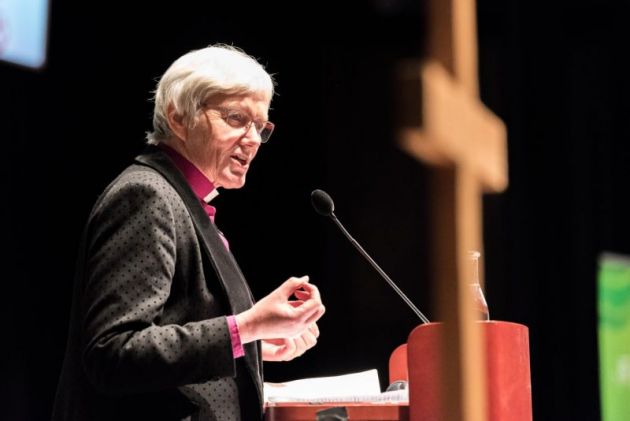
Digitalization, as more than a technological shift, needs attention, says world churches’ leader

The answer as to how digitalization contributes to a good society for all needs in-depth consideration and study, says Rev. Antje Jackelén, the former leader of the (Lutheran) Church of Sweden and a member of a leading ecumenical body.
Jackelén is a member of the World Council of Churches Faith and Order Commission, and wrote for the WCC that digitalization requires an interdisciplinary approach.
She said it needs to consider moral and ethical aspects, alongside the practical benefits it brings in people’s everyday lives.
“The digital infrastructure is developing faster than we can digest. One moment, we hear arguments for children to acquire digital skills as early as possible.
“Next, we are warned that children’s brains are disrupted in their development by too much screen time,” she explains.
Jackelén is also concerned about the gender gap in access to digital tools.
She cites studies by the UN Commission on the Status of Women, which show that women and girls have less access than men and boys.
Women and girls also run significantly higher risks of getting offended or harassed online.
“The fundamental questions, which must be addressed when new technology dramatically changes our lives, remain: What is the meaning? Am I good enough? Am I loved?
She says, “Such eternal questions require a closer dialogue between the developers of digital tools and the humanities, including theology”, she says.
The massive technological shift towards digitalization has impacted people’s daily lives in unprecedented ways.
In no time, Artificial Intelligence (AI) has upped the pace further, with computer systems performing complex tasks usually associated with human perception, reasoning, decision making, and creativity.
These systems now include programmes available for everyday use, promising increased efficiency, creativity, and accessibility.
AI thus raises serious ethical considerations, as noted in previous WCC statements on the matter.
Yet, AI is already so integrated into systems, beyond the control of its users, that it is impossible to avoid.
“But what exactly is human intelligence, in the light of the artificial version of it, that is now permeating our daily lives,” Jackelén ponders in the article.
“So far, AI is clearly created in our image. But will a time come when it creates humans in its image? A time when the meaning of everyday phenomena, such as trust, knowledge, communication, work, death and integrity, are at stake?”
She also wonders how will AI affect the labor market and the meaning of work in life?
Will knowledge be valued? How does AI affect human self-understanding? These are existential aspects that require philosophical and theological reflection”, she continues.
Jackelén compares the impact of AI to the inventions of the mechanical loom and the printing press, although on a much larger scale.
But while the mechanical loom and the printing press, despite their revolutionary power, were never more than mechanical tools controlled by humans, she sees AI as different in the sense that it challenges our view and valuation of knowledge.
“It transgresses into our intellectual sphere in a way which may affect our self-understanding as human beings,” says Jackelén.
Historically, groundbreaking scientific discoveries have challenged established realities and self-understandings.
Jackelén cites Copernicus, Darwin and Freud as major examples of scientists from different academic disciplines, who profoundly impacted our self-understanding.
“With AI, we are on a journey whose destination we do not know”, she notes.

